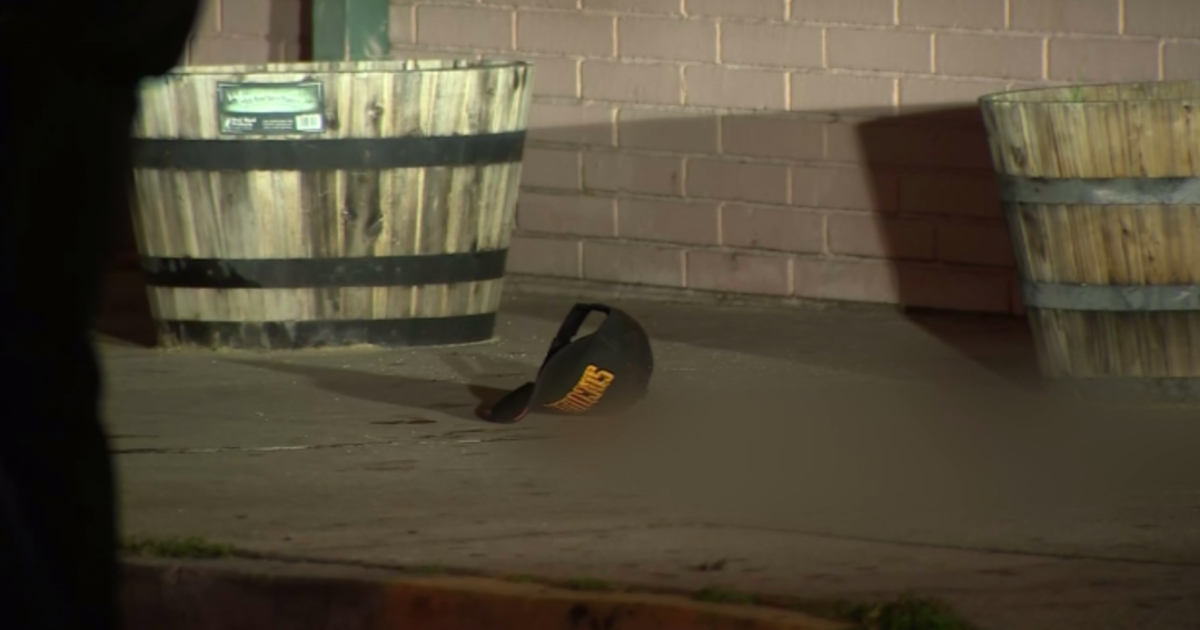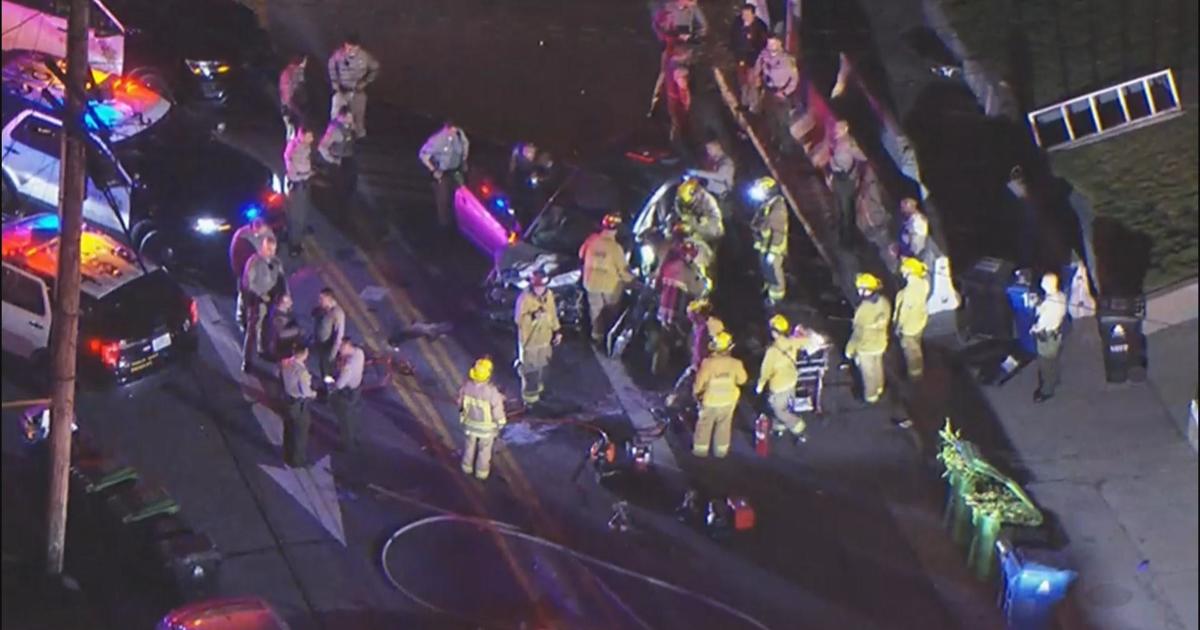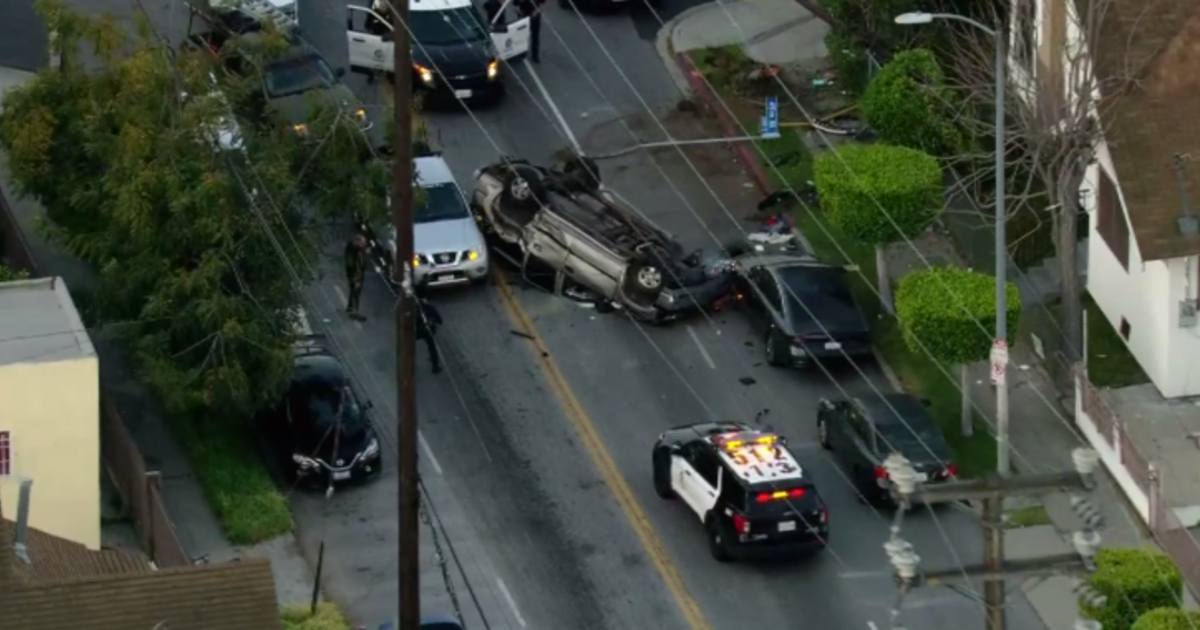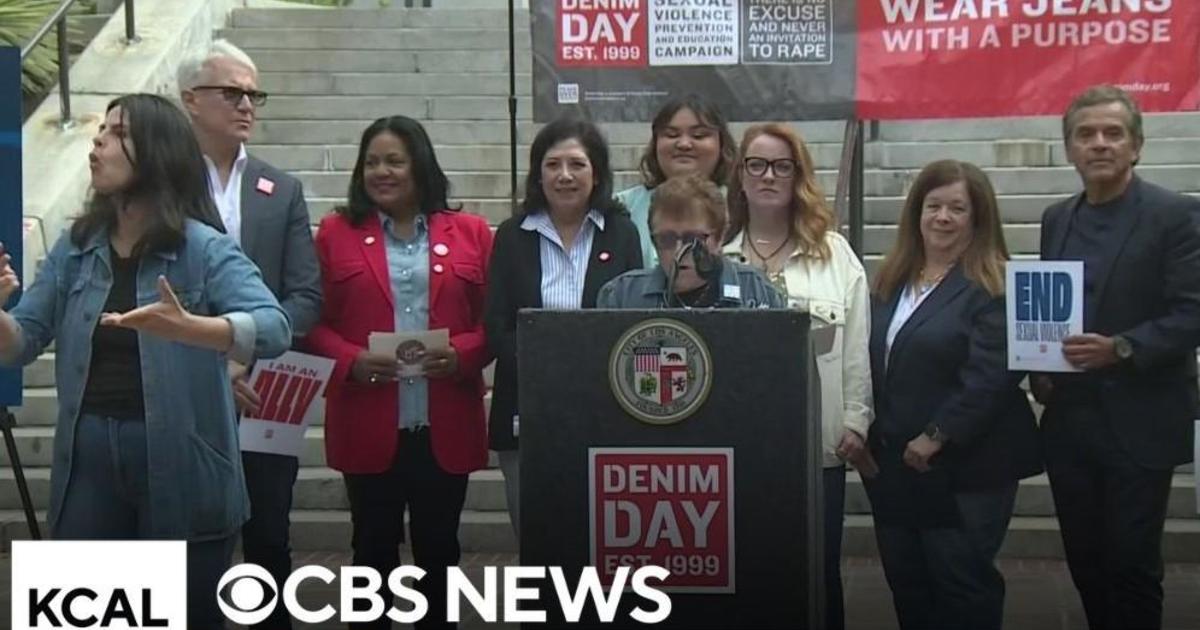LA Mayor Calls For Cuts To Water Usage, DWP Imports To Fight Drought
LOS ANGELES (CBSLA.com) — Mayor Eric Garcetti issued an executive order on water conservation Tuesday to address the drought and reduce the city's use of expensive imported water.
"Executive Directive #5" (PDF) calls for a reduction in fresh water use by 20 percent by 2017 and in the DWP's purchase of imported water by 50 percent by 2024.
Garcetti met with reporters to announce the directive at the John Ferraro Building in downtown L.A., which serves as the headquarters of the Department of Water and Power.
Under the directive, city departments are also ordered to sharply cut water use by reducing watering and replacing lawns or other water-intensive landscaping at city facilities, street medians and sidewalk parkways. In addition, officials have been ordered to increase incentives for residents to conserve water usage, including an increase in the DWP's turf replacement incentive to $3.75 per square foot.
Outdoor water use currently accounts for about 50 percent of residential consumption, according to the mayor's office.
The directive is also aimed at lowering water bills: reducing per capita water usage by 20 percent could save ratepayers as much as $120 million annually, Garcetti said.
"Our relationship with water must evolve. We cannot afford the water policies of the past," said Mayor Garcetti. "We must conserve, recycle and rethink how we use our water to save money and make sure that we have enough water to keep L.A. growing."
Jeffrey Kightlinger, the general manager of the Metropolitan Water District, which supplies most of Southern California's drinking water, told KNX 1070 NEWSRADIO whatever steps Garcetti takes, it's clear the status quo must change.
MWD's Jeffrey Kightlinger
"This is a long-term way of life here in Southern California, and we're going to have to do not only more conservation, but we're going to have to invest more in alternative water supplies," said Kightlinger.
The city of L.A. currently receives 90 percent of its water supply from at least 250 miles away, according to Kightlinger, who said officials likely are looking to reduce that number down to around 50 percent.
Recycled water use - similar to processes used by golf courses and other public venues - may have to be expanded to the "household level" as one potential step toward increasing conservation, Kightlinger said.
RELATED:



